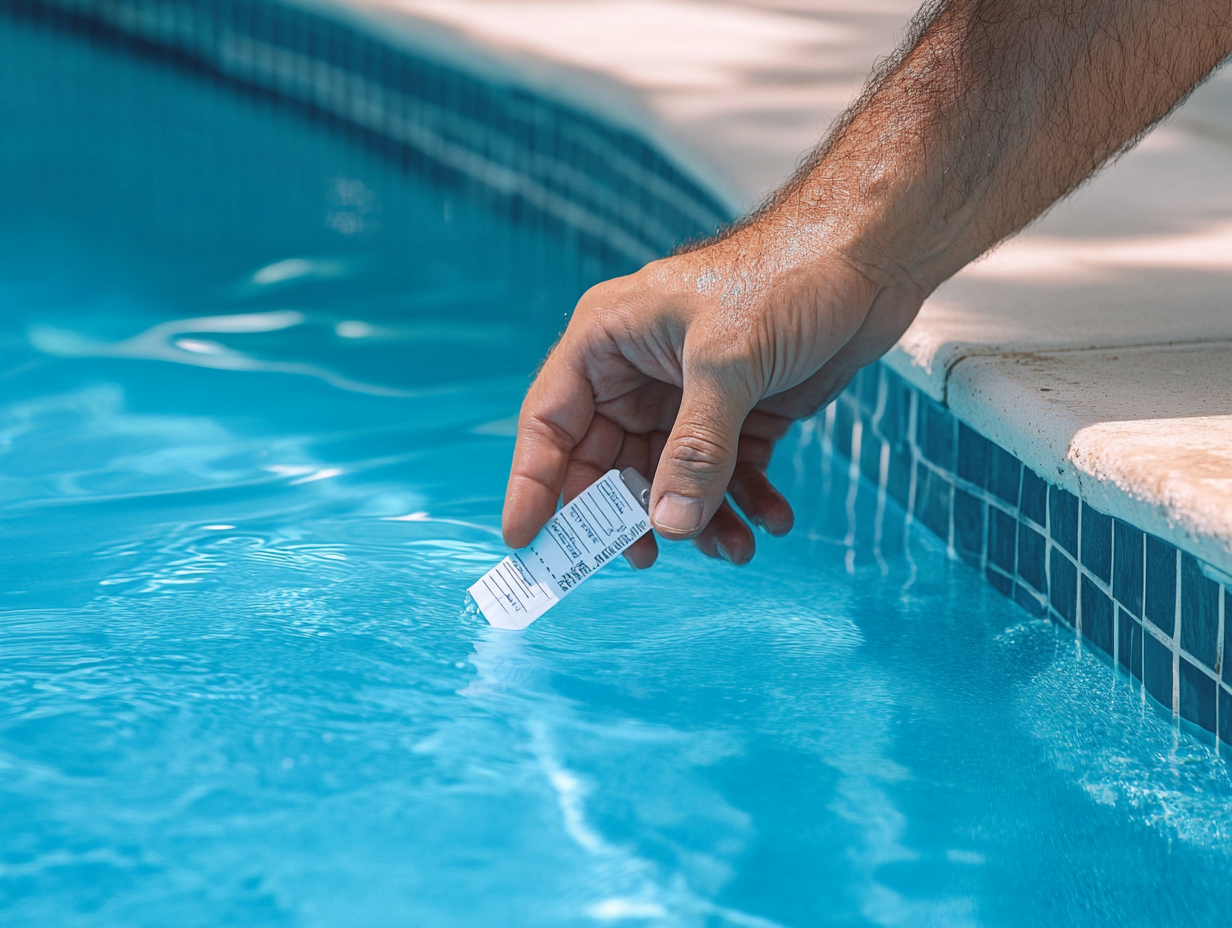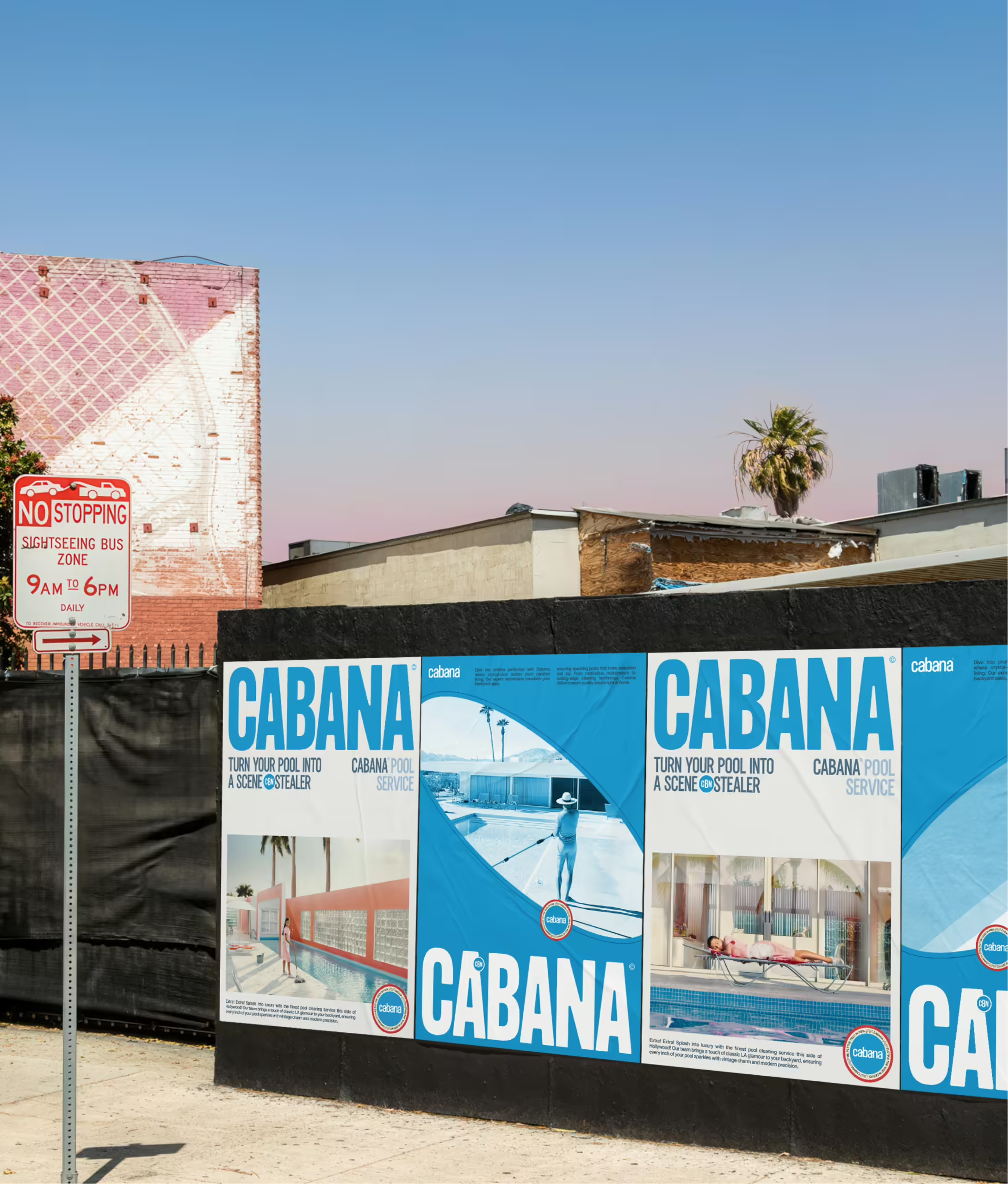Professional Pool Heater Repair Service
Our expert pool heater technicians ensure that your tropical oasis is warm and welcoming.
Rated 4.9/5 by 2,200+ customer reviews
Conquer the Cold with Our Top-Rated Pool Heater Repair Service
Tropical paradise turning chilly? If your secluded hideaway is quickly becoming arctic-like, it’s time to consider pool heater repair for your pool. Cabana’s experienced technicians make short work of most pool heater problems, ensuring that you can enjoy the carefree lifestyle you deserve. From thermostat troubles to electrical problems and everything in between, call Cabana today.
Discover why our customers love our San Diego pool heater repair service.
Turn to the Experts for Pool Heater Repair
When the mercury drops, your pool heater should extend your swim season. Don’t let a faulty system compromise your enjoyment. Cabana’s team of experienced pool professionals has the expertise to get it back up and running in no time. We service Hayward, Pentair, Raypack, Jandy, and other top pool heater brands.
Reclaim your piece of paradise with our expert pool heater repair.
Reclaim your piece of paradise with our expert pool heater repair.
From cleaning to repairs to installations, we've got you covered.
What's included with our weekly pool cleaning service?
Check & Balance Pool Chemicals
Say farewell to hassle as we balance your pool chemicals for optimum water quality.
Inspect Filter System & Backwash
Clean filters are the secret to an immaculate pool all year long.
Manually Vacuum Pool Surfaces
Nothing can replace a thorough, hand cleaning.
Treat for Algae
Conquer the green with our expert algae treatments.
Clean Skimmer & Pump Baskets
We keep the water flowing freely to help ensure your pool is immaculate.
Empty Catch & Maintain Automatic Pool Vacuum
It’s all about peace of mind that everything’s operating optimally.
Brush Steps & Walls
Regular deep cleaning ensures you have a tranquil oasis.
Skim Water, Clean Leaves, Remove Debris
We leave your pool looking immaculate for worry-free enjoyment.
Detailed Post-Service Report
We detail every step and all our findings so you can make accurate decisions.
What's included with Weekly Pool Service?

Check & Balance Pool Chemicals
Say farewell to hassle as we balance your pool chemicals for optimum water quality.
Inspect Filter System & Backwash
Clean filters are the secret to an immaculate pool all year long.
Manually Vacuum Pool Surfaces
Nothing can replace a thorough, hand cleaning.
Treat for Algae
Conquer the green with our expert algae treatments.Clean Skimmer & Pump Baskets
We keep the water flowing freely to help ensure your pool is immaculate.Empty Catch & Maintain Automatic Pool Vacuum
It’s all about peace of mind that everything’s operating optimally.Brush Steps & Walls
Regular deep cleaning ensures you have a tranquil oasis.Skim Water, Clean Leaves, Remove Debris
We leave your pool looking immaculate for worry-free enjoyment.Detailed Post-Service Report
We detail every step and all our findings so you can make accurate decisions.
Here's how it works.

step 1
Get a quote
View transparent pricing options, service plans, and schedule your service in just 5 minutes or less, all online.
step 2
Specialist visit
A specialist will visit your property to make a professional diagnosis and resolve any issues your pool's heater is having. After our visit, you'll get a service summary with personalized tips and suggestions for care.
step 3
Guaranteed results
We are so committed to providing you an awesome experience that if you aren't completely satisfied, we'll come back and fix it, free of charge. *
Pool Heater: Internal Component Repair
Wiring, pump motors, circuit boards –– these are just some of the internal components that may fail and leave your pool too cool for enjoyment. We can accurately identify, diagnose, and replace faulty components to get you back in the water fast.
Pool Heater: External Component Repair
Housing damage, gas/electricity supply issues, blocked exhaust ports –– all of these issues can mean your pool heater isn’t doing its job (and may lead to more serious problems). Let Cabana’s team handle your pool heater repairs quickly and accurately.
Why Choose Cabana?
Why turn to the team at Cabana for your San Diego pool heater repair? We’re making waves in the pool heater repair industry (and the wider pool service industry) with fast, accurate repairs that address the underlying problem so you can get back into the water. We guarantee:
• A methodical diagnosis
• Accurate repairs
• Fast assessment and repairs
• Name-brand components

Your neighbors say it best.



5,000+
Satisfied Customers
Let's get back to swimming.
Give us a call.
Talk with an expert and get a free quote.
Sun – Sat : 8:00 AM – 5:00 PM PST
Get online quote.
Get a fast, free online quote in just 5 minutes.
Need support?
Get your questions answered and connect with one of our experts in just seconds.
Popular Locations
Los Angeles, CAMalibu, CAVenice, CAPacific Palisades, CACulver City, CASherman Oaks, CAChatsworth, CABeverly Hills, CAHidden Hills, CABrentwood, CACalabasas, CAEncino, CAWoodland Hills, CAWestlake Village, CASanta Monica, CAPasadena, CAGlendale, CARolling Hills Estates, CAArcadia, CALa Canada Flintridge, CAWest Hills, CABel Air, CAHollywood Hills, CAManhattan Beach, CAWest Hollywood, CAPalos Verdes Estates, CARancho Palos Verdes, CALong Beach, CARedondo Beach, CAAgoura Hills, CABurbank, CAMar Vista, CAEl Segundo, CAPlaya Vista, CAPlaya Del Rey, CAMarina Del Rey, CASilver Lake, CAStudio City, CAInglewood, CA